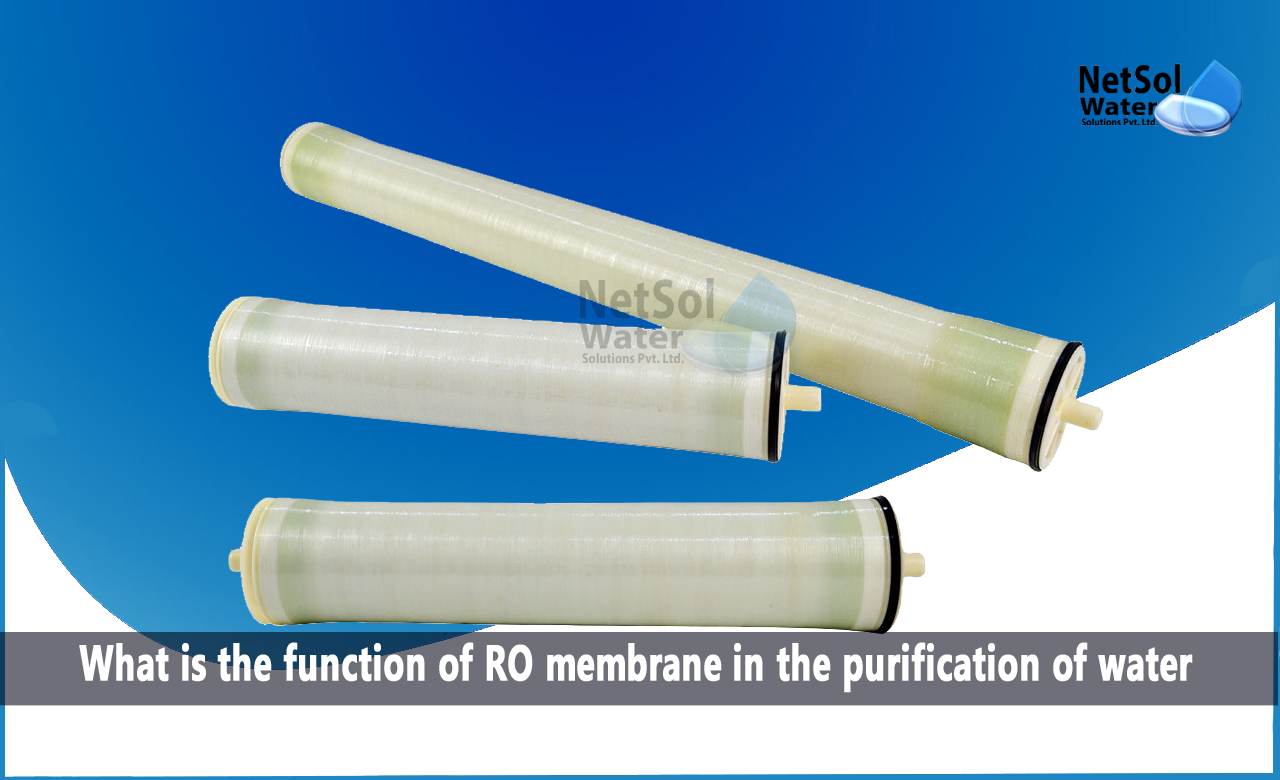It's very important to initially comprehend the type of water your residence or a commercial property receives. Since, hard water contains more dissolved solids, chemicals, and other impurities than soft water does, water with a high TDS is significantly more challenging to clean. You require reverse osmosis (RO) filtration technology to treat such water!
RO plants multi-stage filters remove various contaminants found in water, via numerous stages of filtration. It is the most crucial of these filters. Only pure water can travel through the thin, semi-permeable membrane since it has tiny pores on it. On the other side, the impure water is expelled as reject water.
Now, let’s see the function of RO membrane in the purification of water.
What is the function of RO membrane in water purification?
High pressure is used to force the input water through the RO membrane. It only lets pure water pass through the membrane. Thus, the surface gets contaminated with numerous pollutants, salts, heavy metals, chemicals, pesticides, as well as microorganisms.
RO membrane is crucial to the process of purifying water. Let's read more in depth:
What does a membrane do?
The membrane has minuscule pores and is a thin, semi-permeable coating. The water that has been contaminated is released as reject water. Due to the intense pressure, only pure water can pass through the membrane.
What role does the membrane play in reverse osmosis?
Water filtration is becoming more affordable thanks to the use of membranes. It has been demonstrated that reverse osmosis (RO) membranes significantly reduce total dissolved solids, heavy metals, organic pollutants, and other dissolved contaminants.
1: Removes extra TDS to make water taste sweeter
The term "total dissolved solids" (TDS) refers to the concentrated amount of inorganic salts, and other substances in water. Water loses its taste and becomes more salty when TDS is present. More than 90% of the TDS in water is reduced by a RO plant, which enhances the taste and sweetness of the water.
2: Removes dangerous chemicals and pathogenic contaminants
The water may naturally include harmful elements like bacteria, viruses, chemicals, and heavy metals, which can have a significant negative impact on one's health. These pollutants can cause a number of water-borne illnesses, including cholera, typhoid, and diarrhoea.
Hence, in order to prevent these diseases, one must ensure that the water we ingest is completely safe and clean.
3: Ideal for cleaning water from all sources
RO is one of the most advanced methods of water filtration. Netsol Water Commercial RO Plant ensures that your water is 100% pure and safe to drink, regardless of whether it comes from municipal, ground water, bore-well, tank, or storage.
How frequently should a RO filter's membrane be changed?
Every six to twelve months, the reverse osmosis membrane needs to be replaced. To ensure that the water is of good quality, the post-carbon filter found in a RO plant must be updated every 12 months.
Commercial and Industrial RO Plant manufacturers and suppliers
With cutting-edge water filtration technology, purchase the best RO Plants from Netsol Water. These are ISO certified, BIS approved, and in high demand in the water treatment sector, due to their ability to convert untreated-contaminated water into usable and pure water.
To guarantee you get the most out of your equipment, we also offer installation, training, commissioning, and support. For further information or to make a product purchase, contact us at +91-9650608473 or drop a mail at enquiry@netsolwater.com



